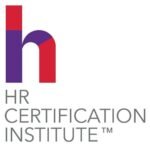
Human Resource Management
GPHR Global Professional in Human Resources
Categories: Online
GPHR Global Professional in Human Resources
Categories: Online
- Overview
- Course Outline
- Association
Course Methodology
The GPHR course is delivered through instructor-led sessions combining interactive lectures, case studies, practical exercises, group discussions, and exam-focused preparation. Participants also gain access to full-length practice exams, flashcards, and educational games, ensuring comprehensive knowledge and exam readiness.
Course Objectives
By the end of this course, participants will be able to:
- Align people practices with international business objectives.
- Oversee recruitment, mobility, and retention of a diverse, global workforce.
- Build equitable, competitive HR frameworks worldwide.
- Navigate international labor laws, regulations, and risk management.
- Drive collaboration, inclusion, and cultural agility across global teams.
- Position HR as a strategic partner in worldwide expansion.
- Prepare effectively for the GPHR certification exam and achieve global recognition.
Target Competencies
-
Global Talent Acquisition & Mobility
-
International HR Policy & Compliance
-
Cross-Cultural Leadership & Inclusion
-
Global Compensation & Benefits Strategy
-
Employee Relations & Risk Management
- HR Analytics for Global Strategy
Module 1
- Align HR strategy with global business strategy (PESTLE, labor markets, regulation)
- Global workforce planning and restructuring (gap analysis, cost, culture, laws)
- HR delivery models (regional/global CoE, shared services, outsourcing, offshoring)
- Global organization design and structure management
- HR role in mergers, acquisitions, and divestitures
- Using HR metrics (turnover, ROI, eNPS, cost per hire) for strategic decisions
Module 2
- Global talent strategy (acquisition, retention, succession planning)
- Sourcing approaches (RPO, consultants, referrals, social media, internal transfers)
- Global talent assessments (bias awareness, cultural relevance, tools)
- Alternate work arrangements (remote, telecommuting, cross-border)
- Learning and development across diverse geographies and cultures
- Engagement and retention programs (peer recognition, surveys, coaching)
Module 3
- Types of expatriate assignments (short-term, long-term, hybrid, local plus)
- Employee categories (host, parent, third-country nationals)
- Expatriation logistics (training, visas, relocation, integration, family support)
- Cost analysis of assignments (housing, COLA, travel, allowances, taxes)
- Onboarding and offboarding expatriates across different countries
- Repatriation planning and localization strategies
Module 4
- Cultural competence frameworks (Hofstede, Trompenaars) in HR practices
- Diversity and inclusion in global workforce strategy
- Addressing cultural, religious, and social dynamics in HR programs
- Corporate Social Responsibility (CSR) in a global context
- Ethical practices and anti-bribery standards (FCPA, UK Bribery Act, Safe Harbor)
Module 5
- Global compensation and benefits (statutory vs. voluntary, expatriate vs. local)
- Compensation philosophies (host-based, home-based, COLA, Big Mac Index)
- Supplemental pay (hazard pay, hardship allowance, per diems, stipends)
- Managing rewards in high-risk or extreme environments
- Retirement plans: defined benefit vs. defined contribution (statutory/voluntary)
Module 6
- Global workplace safety and security risk strategies
- Incident management resources (insurance, travel/medical services)
- Risk controls: audits, approvals, segregation of duties, quality assurance
- Anti-discrimination, anti-bullying, anti-harassment policies globally
- Conducting employee investigations across multiple jurisdictions
- GDPR and global data privacy compliance principles

HR Certification Institute®
HR Certification Institute (HRCI), based in Alexandria, Virginia, is the world’s leading credentialing and learning organization for the HR profession. For nearly 50 years, HRCI has been setting the global benchmark for HR knowledge and excellence, empowering professionals to grow and succeed in the people business.
- Overview
Course Methodology
The GPHR course is delivered through instructor-led sessions combining interactive lectures, case studies, practical exercises, group discussions, and exam-focused preparation. Participants also gain access to full-length practice exams, flashcards, and educational games, ensuring comprehensive knowledge and exam readiness.
Course Objectives
By the end of this course, participants will be able to:
- Align people practices with international business objectives.
- Oversee recruitment, mobility, and retention of a diverse, global workforce.
- Build equitable, competitive HR frameworks worldwide.
- Navigate international labor laws, regulations, and risk management.
- Drive collaboration, inclusion, and cultural agility across global teams.
- Position HR as a strategic partner in worldwide expansion.
- Prepare effectively for the GPHR certification exam and achieve global recognition.
Target Competencies
-
Global Talent Acquisition & Mobility
-
International HR Policy & Compliance
-
Cross-Cultural Leadership & Inclusion
-
Global Compensation & Benefits Strategy
-
Employee Relations & Risk Management
- HR Analytics for Global Strategy
- Course Outline
Module 1
- Align HR strategy with global business strategy (PESTLE, labor markets, regulation)
- Global workforce planning and restructuring (gap analysis, cost, culture, laws)
- HR delivery models (regional/global CoE, shared services, outsourcing, offshoring)
- Global organization design and structure management
- HR role in mergers, acquisitions, and divestitures
- Using HR metrics (turnover, ROI, eNPS, cost per hire) for strategic decisions
Module 2
- Global talent strategy (acquisition, retention, succession planning)
- Sourcing approaches (RPO, consultants, referrals, social media, internal transfers)
- Global talent assessments (bias awareness, cultural relevance, tools)
- Alternate work arrangements (remote, telecommuting, cross-border)
- Learning and development across diverse geographies and cultures
- Engagement and retention programs (peer recognition, surveys, coaching)
Module 3
- Types of expatriate assignments (short-term, long-term, hybrid, local plus)
- Employee categories (host, parent, third-country nationals)
- Expatriation logistics (training, visas, relocation, integration, family support)
- Cost analysis of assignments (housing, COLA, travel, allowances, taxes)
- Onboarding and offboarding expatriates across different countries
- Repatriation planning and localization strategies
Module 4
- Cultural competence frameworks (Hofstede, Trompenaars) in HR practices
- Diversity and inclusion in global workforce strategy
- Addressing cultural, religious, and social dynamics in HR programs
- Corporate Social Responsibility (CSR) in a global context
- Ethical practices and anti-bribery standards (FCPA, UK Bribery Act, Safe Harbor)
Module 5
- Global compensation and benefits (statutory vs. voluntary, expatriate vs. local)
- Compensation philosophies (host-based, home-based, COLA, Big Mac Index)
- Supplemental pay (hazard pay, hardship allowance, per diems, stipends)
- Managing rewards in high-risk or extreme environments
- Retirement plans: defined benefit vs. defined contribution (statutory/voluntary)
Module 6
- Global workplace safety and security risk strategies
- Incident management resources (insurance, travel/medical services)
- Risk controls: audits, approvals, segregation of duties, quality assurance
- Anti-discrimination, anti-bullying, anti-harassment policies globally
- Conducting employee investigations across multiple jurisdictions
- GDPR and global data privacy compliance principles
- Association

HR Certification Institute®
HR Certification Institute (HRCI), based in Alexandria, Virginia, is the world’s leading credentialing and learning organization for the HR profession. For nearly 50 years, HRCI has been setting the global benchmark for HR knowledge and excellence, empowering professionals to grow and succeed in the people business.
